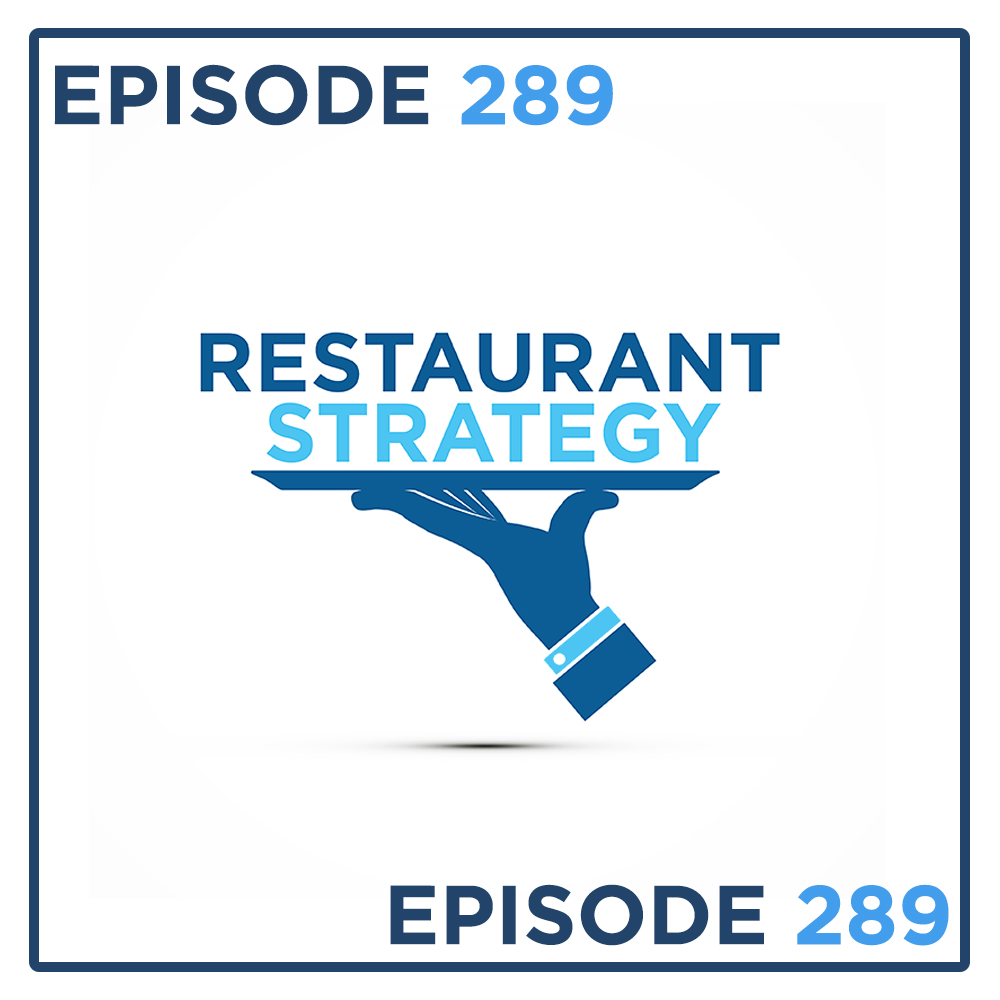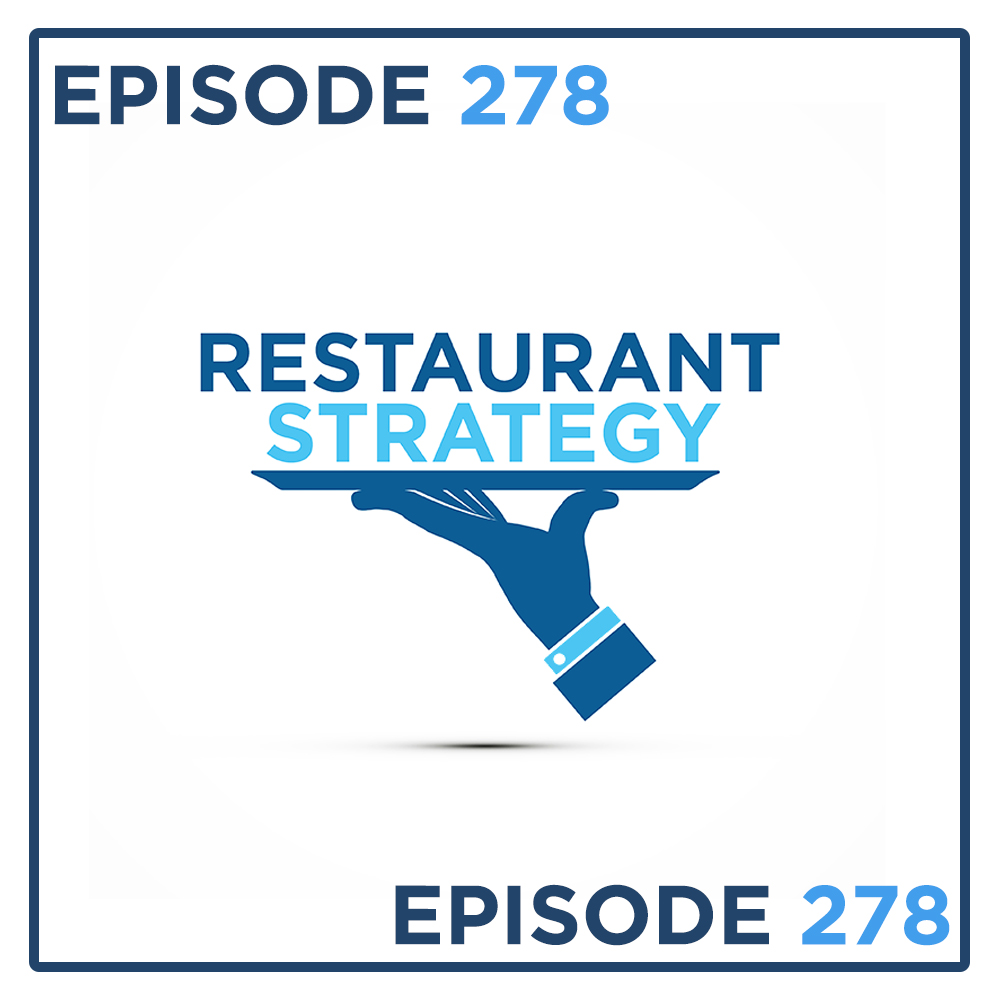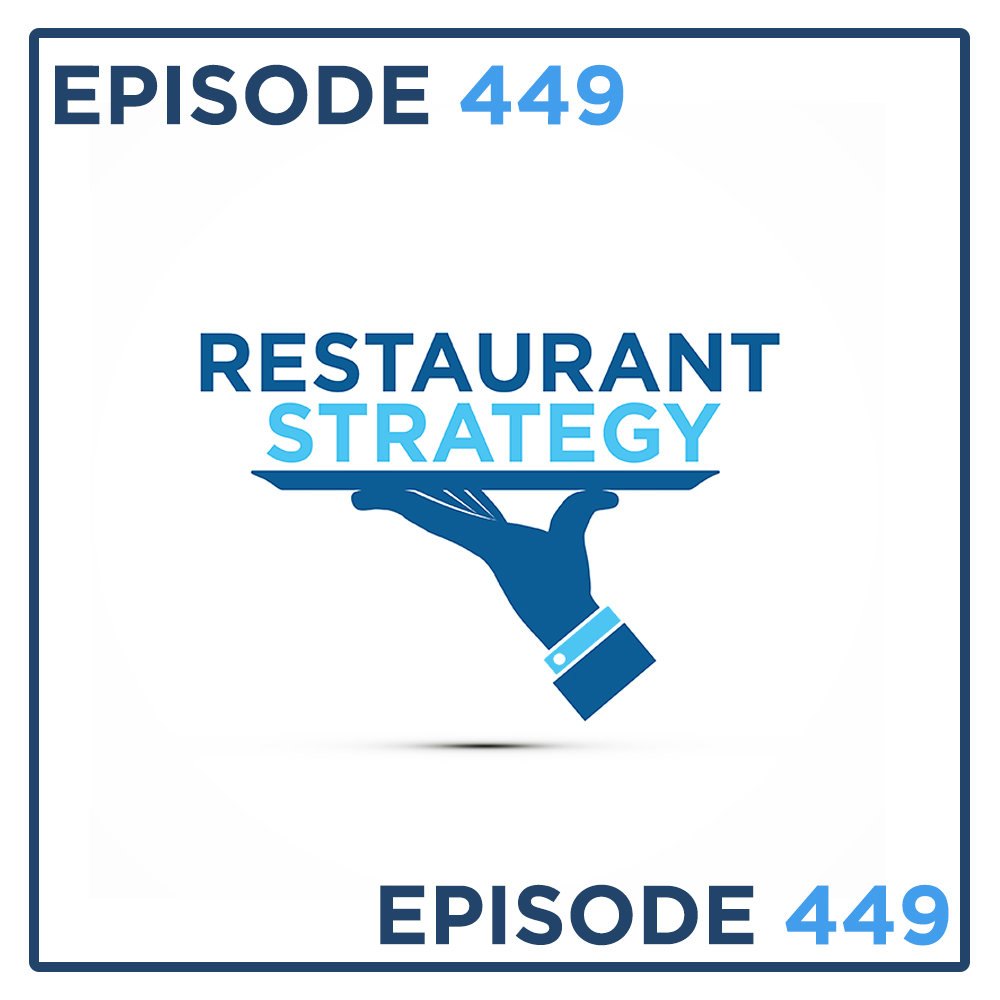[00:00:00] I've worked with a ton of people over the course of my career, but one guy in particular became a mentor of mine and one of my best friends. We worked together on five different projects over the course of nearly a decade. And every single day there are two things he would do, two things that made him a beloved leader with the people that he managed. I want to explain what those two things are because it's going to make you that much more of an effective leader. All of that on today's episode of Restaurant Strategy. There's an old saying that goes something like this. You'll only find three kinds of people in the world. Those who see, those who will never see, and those who can see when shown. This is Restaurant Strategy, a podcast with answers for anyone who's looking.
[00:00:58] Hey everyone, thanks for tuning in. My name is Chip Close. This is Restaurant Strategy podcast dedicated to helping you build a more profitable and a more sustainable business. Each week we cover everything from marketing to operations, everything in between. Laser focused on helping you generate consistent, predictable 20% returns over 400 episodes of the show. You can go back and there's a wealth of knowledge here, but if you want more direct help, if you want to work within the community that I've built. It's called the P3 mastermind. It's a group coaching program where we've scaled it from one group all the way up to four different groups. Nearly 150 people currently enrolled in the program. We have grown it that much because the program works. If you have a busy restaurant but struggle with profitability, meaning you're not making what you think you should be making from your restaurant, then I want to chat. Go to restaurantstrategypodcast.com schedule grab some time on the calendar. You'll chat with me or someone from my team and let's find out what's going on. I'll ask you a couple questions about your restaurant. You'll get to ask a bunch of questions about the program that we run and let's see if it's a good fit again. Restaurantstrategypodcast.com schedule as always, that link is in the show notes.
[00:02:07] Now Torc understands that expectations for food service, sustainability and guest experience are higher than they've ever been. That's why Torque provides products and services that help restaurants actually meet those demands. With more than 50 years of global food service expertise, Torc can help you keep up with hygiene standards and food safety guidelines in every area of your business. Foh Boh restrooms and drive thru from ExpressNap the world's favorite napkin dispenser to multi purpose cleaning towels that clean smarter and high capacity restroom dispensers that reduce runouts. Torque offers better hygiene for better guest and staff experiences. You can check them out and get more
[email protected] restaurant please use that link torqueusa.com restaurant to learn about all of the products they have. As always, that link is going to be in the show notes.
[00:03:02] Okay, so today I want to share shorty little episode here. There are two things that my mentor used to do, used to do every single day. Two things he used to say, two behaviors that he sort of, that he sort of wore. Sometimes it was real and sometimes it was manufactured. Two things that made him such an effective leader, has made me a better leader and therefore I think is going to make you a better leader. Two things we're going to keep this episode short and sweet. The first thing he would do every single day is he went out of his way to say, I don't know, right? This is a guy who had, I don't know, three decades of experience by the time that I had started working with him. And still he went out of his way to say, I don't know. Now sometimes there were things that he truly didn't know. And if he wasn't an expert, if he didn't have expertise in that area, he was the first to say it. I don't know. But there were plenty of other times when he would say I don't know, even though he very well did know. But he did it as a pedagogical exercise, right? As a way of teaching the people that he led. Because he would say, I don't know, what do you think we should do? And what he realized long time ago is that he could very easily make a bunch of decisions. Well, do this, do that, pick, go left, go right, pick red, pick black, whatever it was, he could make a bunch of decisions. He was certainly capable. But he was robbing the team, the staff, his managers, everybody below him. He was robbing them of the opportunity to exhibit a bit of buy in, to exhibit a sense of ownership over the restaurant, right? By letting them, meaning the people below him, me, I worked under him by letting all of us make decisions on our own. We had a little bit of buy in because he said, I don't know, what do you think? And then all of us who were in that position would stop and we would think, rather than just asking for the answer to test, we would go and figure out the answer to the Question.
[00:05:00] And what happened is something incredible because really, it really did promote a sense of ownership. And for him, it made his life easier. He was teaching me, whether he realized it or not, whether I realized it or not at the time, he was teaching me what really great CEOs do, right? A CEO is an executive. It's somebody whose main job is to put the right team together and get out of the way. And then when the time came to make really important decisions. But otherwise, otherwise it was about relying on the team below. So every single day he was really good about saying, I don't know. What it did is it brought a sense of humility to the job. It brought humility within the four walls of the restaurant. And the other thing he did is when he very well did know and he did have an opinion about something, he would say, I don't know, what do you think? And here's the key. At the end of the day, he said, I don't know, what do you think we should do? And somebody said, oh, I should go left. And if he knew left was absolutely the wrong thing to do, he would say, why do you think we should go left? And he would reason it out and make sure he understood. And at the end, he realized he was the leader, he was the executive. He got to make the final decision. So he would say, yes, okay, I got it. But what you haven't thought of is X, Y, Z. Because of those reasons, we're not going to go left. I think we should go right. He knew at the end of the day, the decision lied with him. He was responsible for all the decisions. Whether he let those decisions be made for him or whether he got to weigh in and correct the people who he was leading, I don't know was such a powerful thing to say. I try to bring that into my day to day, try to bring that into my relationship I have with my son, with the members of the Mastermind, the clients that I work with, with colleagues, right? Because if I have an opinion, if I just say what I know, I'm not asking them questions. And I'm robbing myself, robbing me of the chance to learn more, to learn a different way or a better way of doing it, I don't know is such a powerful thing to bring into your daily vocabulary. One other thing he did, we're going to talk about that in after a word from another one of our sponsors.
[00:06:57] Thousands of restaurants across the country use Kickfin to send instant cashless tip payouts directly to their employees bank accounts. The second Their shift ends. It's a really simple solution to what's become a really big problem. Because let's face it, paying out cash tips to your workers day after day, shift after shift, it's kind of a nightmare. Tedious tip distribution takes your managers away from work that actually matters. It's sometimes hard to track payments, which leads to accounting and compliance headaches. Plus, cash tip outs create the perfect opportunity for theft. And there's never been, there's never enough cash on hand to pay out those tips. So what, what happens? Your managers are constantly having to make bank runs. Bottom line, there's never been a secure, efficient way to tip out. Until now. Meet Kickfin. Kickfin is an easy to use software that sends real time cashless tip payouts straight to your employees bank accounts. 247365 tipping out with Kickfin gives managers and operators hours back in their day. It makes reporting a breeze and protects your business from mistakes and theft. And guess what? Employees love it. So it becomes a really powerful recruiting tool. Best of all, restaurants can have Kickfin up and running overnight. Employees can enroll in seconds. No hardware, no contracts and no setup fees. Get in touch today for a personalized demo and see how restaurants and bars across the country are tipping out with Kickfin. Visit kickfin.comdemo and yes, that link is in the show notes.
[00:08:25] Okay, so today I'm talking about my mentor. My mentor who I worked with, I don't know, a million years ago, worked together on five different projects across 10 years. There are two things he did every single day. I already shared the first one. First one was he said, I don't know. He said, I don't know so much every single day. Even when he very well did the other thing he would do every single day, it was a script, it was put upon, it was a behavior. He would say, my bad, that was my fault. He took ownership of things whether they were his fault or not. He was so good at taking ownership, right?
[00:09:01] He just put his hand on his chest and he said, that was me, my bad, my fault. I'll take ownership of that. I'll take the blame for that. What he did is that he relieved the pressure from the people who were under him. But what he also did was he showed what a truly leader does. A true leader steps up and takes responsibility. At the end of the day, he is responsible for everybody below him, just like you guys are responsible for everybody below you. So even though maybe a waitress made a bad decision and talked back to a table, it's ultimately your Responsibility, the buck stops with you, right? Because you were the one who hired that person and trained that person and provide oversight for that person. So if that person was not hired properly, trained properly, or, you know, managed properly, well, then ultimately it is somebody else's fault that she did what she did.
[00:09:51] When you say my bad, when you say my fault, hey, that. When you take blame for it, that is infectious. It goes all the way around the restaurant and everybody else starts taking blame for things. I'm sorry, that was my fault. You know what? You know what? That was me. That was me. When you do that, what happens is you get out of the finger pointing and you go right. You go right to the resolution, right? It's not what happened. Whose fault was. It was. It's me. This is what happened. Let's move on. And you get right to correcting the problem, which is really all that matters in our industry, because things happen every single minute, every single day. Things will go wrong. Somebody puts in the order wrong, somebody cooks it wrong. Somebody slips, spills something, crashes. Something spills something on a guest.
[00:10:37] There's so many times throughout the day when things go wrong. At the end of the day, it really doesn't matter whose fault it was, right? Oh, I overcooked the steak. Oh, I thought it was medium rare. I read it medium. I read it medium well. It's obviously wrong in medium rare. Okay. It doesn't matter. We just got to cook a new one. We got to fix it. When you do that, when you take ownership of that, again, that's infectious. Everybody else starts doing. That was something that I watched firsthand, restaurant after restaurant after restaurant. Eventually, it just wove in. It became part of my sort of operating system. But I watched how it became the operating system for cooks, for bussers, for servers, for bartenders, for other managers. And I'm sure all of us who worked with this guy went out, worked at other restaurants and brought that with them. So even if the other people out there didn't have a podcast the way that I have a podcast, they were spreading that behavior around. What I'm doing right here is just trying to be really deliberate about pointing it out, trying to point out what this person did. Mentor of mine. So again, I worked with a bunch of people, worked with a bunch of people who were good. I learned something from everybody I work with. But there's a lot that I learned from this guy. And two of those things were sort of the foundation of what I think makes a strong leader, and that's humility to Say I don't know. And the humility to take blame, to accept blame for something really fast, to take credit, but can you challenge yourself to take blame? And that's it, guys. Those two behaviors, those two scripts, really, those two lines will make you a more effective leader, will make you more beloved with the people that you manage, will make your restaurant better. And I promise you, it will be infectious. Other people will start doing it, other people will notice it, they will start doing, will create a very hospitable environment, a very generous environment.
[00:12:33] And I hope that for you, I hope you can create the kind of space that is both generous and hospitable. Because that's the kind of place that you're going to want to show up to every day. It's the kind of place that your staff's going to want to show up to every day. And yes, it's the kind of place that your guests just want to be in. You can't point to it, but you can feel it. You know it when you're in a place like that. That's it, guys. Appreciate you guys being here. If again, if you, if your restaurant is struggling with profitability, if you feel like you're not making what you deserve to make, and what you deserve is 20% profit every single month. If you think it's crazy, if you think it's far fetched, I'm here to tell you it's not. The best way to get started is to grab some time on the calendar. RestaurantStrategyPodcast.com Schedule Grab some time and let's get to know each other. Let's hear what's going your restaurant and I want to give you a chance to ask some questions so you better understand how the program works, how we're able to help people. That's it, guys. Appreciate you being here as always. Love having you as part of the community. Be well and I will see you next time.


